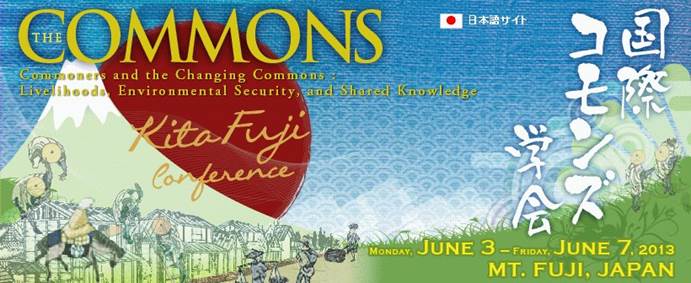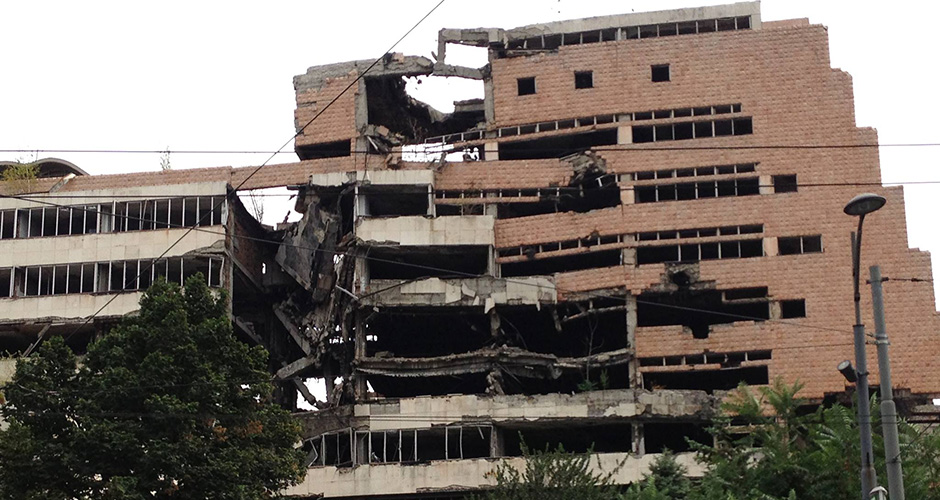国際コモンズ学会 第14回世界大会(北富士)
| 日時: | 2013年6月3~7日 |
|---|---|
| 場所: | 冨士吉田市 |
国際コモンズ学会パネル: On Negative Commons: Bases, Battlefields, Nuclear Testing Grounds and other Military Sites
- 1)Masakazu Tanaka & Christopher Ames: Introduction,
- 2)Ikuno Ochi: A Study on the Management of Local Commons in Returned U.S. Military Lands after the Reversion of Okinawa,
- 3)Christopher Nelson: Building among the Ruins: Contesting the Space of Everyday Life in Postwar Okinawa,
- 4)Takeshi Uesugi: Dioxin Hotspot as ‘Symbolic Common’: A Case of A So Airbase in Central Vietnam,
- 5)Satoe Nakahara: Remaking Local Commons after Radioactive Contamination by H-Bomb Tests.
Public commons and national defense are classic public goods, wherein citizens of a nation-state cannot, without difficulty, be excluded from their benefits, which, when enjoyed by an additional citizen, do not reduce the utility of the good for others. National defense as public good becomes potentially problematic, however, when considered as a form of the commons concretized in the local military facilities that make defense possible. Unlike the wider citizenry, the benefits received by citizens from localities hosting military areas exist alongside costs that tend to be concentrated locally. This panel expands notions of the commons to consider military bases and other sites as “negative commons,” aiming to theorize and ground this new concept by highlighting patterns in transnational empirical data on local military sites. Military bases occupy enormous spaces sometimes even in the midst of urban areas. They are usually accessible only to military personnel, their family members, and civilians working for the military. This mix of inclusion, particularly the widely-shared security of national defense, and exclusion of access to military sites by local citizens, calls into question facile assumptions of national defense as a public good. In addition, military activities on bases cause environmental problems such as noise and hazardous waste pollution, becoming a nuisance for local citizens and eroding perceptions of the benefits they receive from national defense. In Japan and other places, some military bases (Puerto Rico, Philippines, Korea etc.) have been returned to their original owners. The land is sometimes not divided or privatized, but is used as a new commons. The process of returning military land to the original owners varies by nation-state and even locality, being heavily influenced by cultural norms of ownership and local political and economic conditions. Some military- related spaces, such as past war zones or nuclear testing grounds, are, in environmental terms, not easily accessible or usable for productive uses even if returned to their original owners. However, as the negative impact on human life from military activities in these areas decreases over time, local people consider their utility as a form of commons. In this proposed panel we include not only analyses of negative commons as opposed to (positive) commons, but of the process through which local people work to transform military sites (negative commons) into positive commons by seeking base return and reuse of the geographical spaces. The concept of negative commons is not limited to military sites. The panel hopes that the concept of negative commons might be useful for analyzing others kinds of spaces as well. In a manner akin to military sites, public waste disposal plants, abandoned factories, nuclear power plants and other locations resembling public goods that offer or offered widely shared benefits to the public while presenting often obscured costs to local persons may be seen as negative commons offering potential for local transformation into positive commons.
本パネルで、わたしたちはNegative CommonsとかCommons of Tragedeyという概念を提案し、それがこれまでのコモンズ(共有地)研究にどのような貢献が可能かについて4名の研究者について発表を依頼した。ここで言う「悲劇のコモンズ」とは、ある地域に「悲劇」が生じ、人々の日常生活が脅かされる、極端な場合そこを離れなければならないというような状況が生まれる。そのような悲劇には、天災、事故、公害などが想定される。本パネルでは、そうした悲劇の中でも軍事に関係することに絞って議論を深めた。具体的には沖縄戦、米軍による占領、基地建設という一連のできごとで土地を失った沖縄の人々、ベトナム戦争における米軍の枯れ葉剤散布による被害、そしてビキニ環礁での核爆弾実験によって被ばくした人々などを取り上げている。これまでのコモンズ研究が、その管理の実態と変化の事例分析で終わる傾向が強い中で、きわめて異彩を放ち、注目されたといえる。これらの発表はコーディネータのイントロとともに英語雑誌に投稿中である。


